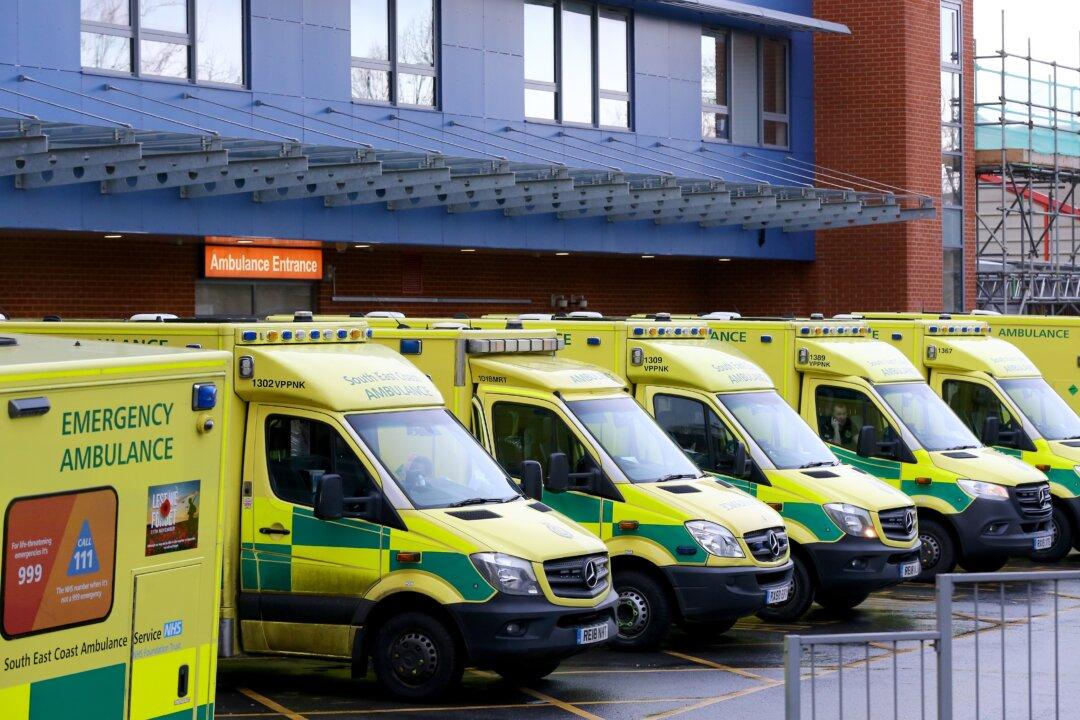Patients whose access to health care was disrupted during the COVID-19 pandemic are 80 percent more likely to be hospitalised, a study found.
According to the study, published in medical journal BMJ by researchers led by University of Liverpool lecturer Mark Green, more than a third of people (35 percent) in England were estimated to have experienced some disruptions to their access to health care, with disruption to an appointment being most common.





